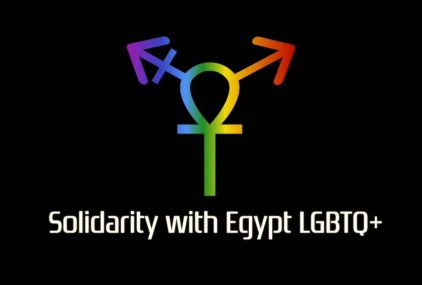The Secret History of Holywell Street: Home to Victorian London’s Dirty Book Trade
Victorian sexuality is often considered synonymous with prudishness, conjuring images of covered up piano legs and dark ankle-length skirts. Historian Matthew Green uncovers a quite different scene in the sordid story of Holywell St, 19th-century London’s epicentre of erotica and smut.

Applications for MATI 2016 now open – deadline: 20 July
Source: http://www.genderjustice.org.za/news-item/applications-mati-2016-now-open/

GATE Statement on the UN SOGI Mandate
Originally posted at GATE’s website on 04/07/20216. Available at: http://gate.ngo/gate-statement-on-the-un-sogi-mandate/ On June 30, 2016, the United Nations Human Rights Council approved a historic resolution creating

UN Human Rights Council votes for independent expert on LGBT discrimination
Originally posted at https://lgbt-ep.eu/press-releases/un-body-votes-for-independent-expert-on-lgbt-discrimination/ In a 23 against 18 vote (6 abstentions)*, the United Nations Human Rights council voted in favour of a resolution condemning

A Development Agenda for Sexual and Gender Minorities
A Development Agenda for Sexual and Gender Minorities, by Andrew Park, International Program Director, The Williams Institute, UCLA School of Law is grounded in current research literature regarding important development outcomes for sexual and gender minorities, such as health, employment, family formation, education and civil participation.

July 2016 – SPW Durban Seminar: SexPolitics: Mapping Key Trends and Tensions in the Early 21st Century
On July 13-15th, Sexuality Policy Watch (SPW) is organizing, in Durban, South Africa, the seminar/workshop ‘SexPolitics: Mapping Key Trends and Tensions in the Early 21st

SC refuses to hear plea on section 377, refers matter to CJI’s bench
The Supreme Court Wednesday declined to examine all over again a plea filed against validity of IPC Section 377, which makes homosexuality a criminal offence punishable with a sentence up to life term. The joint petition has been filed by some prominent gay personalities — celebrity chef and restaurateur Ritu Dalmia, hotelier Aman Nath and dancer N S Johar, among others.

East Asia Forum Quarterly (EAFQ)’s new issue – Gender and sexuality in Asia today
This issue of East Asia Forum Quarterly brings together prominent scholars of gender studies from various countries and disciplines to explore the diversity and complexity of issues of gender and sexuality in contemporary Asia. The essays touch on major developments that have caused shifts in gender relations. They illustrate the tensions between structural violence against women and women’s own agency in coping with male-dominant social arrangements.

Clinical Teaching for LGBT Health at the Point of Care
“Do you live with your husband, too?” the second-year medical student asked, innocently enough. It was our first visit with this patient, a healthy middle-aged African American woman. We were just chatting, trying to get to know her, and I had picked up on little clues in our conversation that had already led me to conclude that there was no husband in the picture. The medical student, though, didn’t seem to have picked up on this and, I thought, was trying to get at her sexual history by asking, instead, about her husband.
Statements after the massacre at an Orlando LGBT nightclub
Solidarity with the LGBTQI community – Frida Mourning Orlando’s Loss from Kabul – Open Society India vigils in memory of Orlando shooting victims – Orinam


